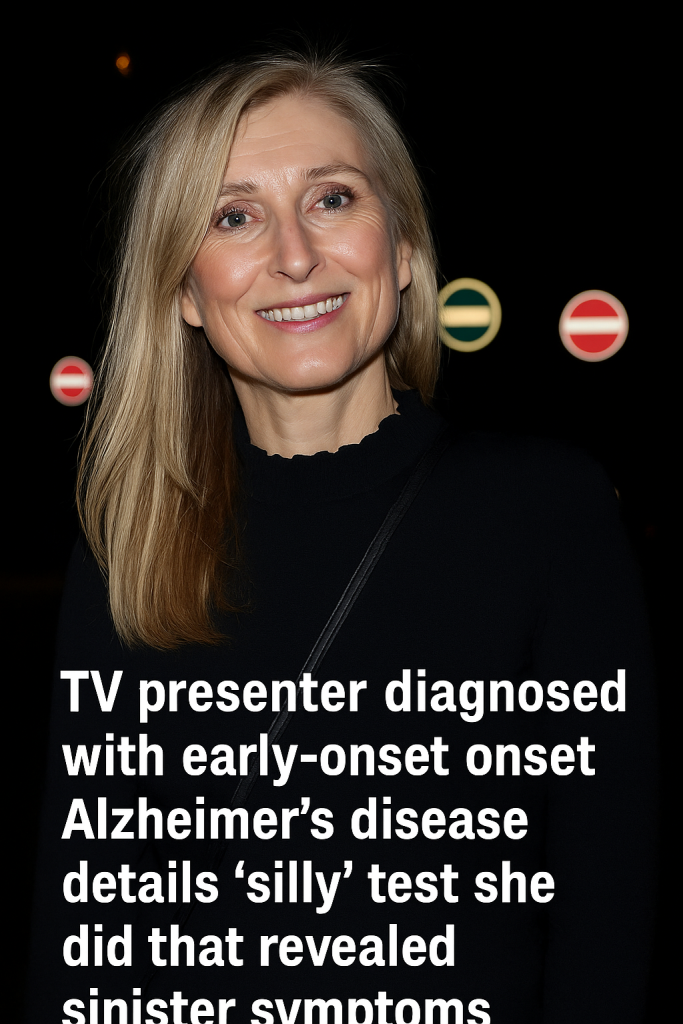In a startling revelation that has captured public attention, two well-known television presenters have been diagnosed with early-onset Alzheimer’s disease after undergoing what one described as a “silly” but unexpectedly difficult test. The diagnosis highlights the subtle and often overlooked early symptoms of this neurodegenerative condition, emphasizing the importance of awareness and early detection.
Both presenters, who have had long and successful careers in the media industry, first noticed subtle changes in their cognitive abilities when faced with a routine memory and problem-solving test. One female presenter has openly shared her feelings of humiliation upon realizing how challenging she found the seemingly simple tasks. She described the experience as “embarrassing” and “a rude awakening,” stressing that it was the difficulties she encountered during the test that prompted further medical evaluation.
The test, initially perceived as trivial, involved basic memory recall and problem-solving exercises that are typically easy for individuals with no cognitive impairment. However, the difficulty level experienced by the presenters raised red flags, leading their clinicians to recommend comprehensive neurological assessments. These subsequent evaluations confirmed the presence of early-onset Alzheimer’s disease, a form of dementia that manifests before the age of 65 and is less common but often more aggressive than the typical late-onset form.
Early-onset Alzheimer’s can be especially challenging to diagnose because symptoms may be mistakenly attributed to stress, burnout, or normal aging. This is why the presenters’ candid disclosure and the unexpected nature of their diagnosis are particularly significant for public health awareness. Their openness is helping to destigmatize the disease and encourage others who notice unusual cognitive symptoms to seek medical advice promptly.
Alzheimer’s disease is characterized by the gradual loss of memory, reasoning capabilities, and other cognitive functions. Early symptoms often include difficulty finding words, confusion over time or place, and trouble completing familiar tasks—symptoms that can be subtle and easily overlooked in younger adults. The “silly” test the presenters took acted as a practical early screening tool that brought these symptoms into sharper focus.
Experts emphasize that early diagnosis can have profound benefits. While there is currently no cure for Alzheimer’s, early intervention strategies—including medication, lifestyle adjustments, and cognitive therapies—can help slow the progression of symptoms and improve quality of life. The cases of these two presenters shed light on the critical need for routine cognitive screening, especially for individuals with a family history or those experiencing unusual cognitive difficulties.
The female presenter’s admission of feeling “humiliated” also brings attention to the emotional toll this diagnosis can have. The stigma associated with dementia often leads to isolation and reluctance to seek help. Public figures sharing their stories can change societal attitudes, promoting compassion and understanding.
As awareness grows, medical professionals urge the public to remain vigilant about early cognitive changes and to approach screening with an open mind. The story of these two presenters underscores that even seemingly “silly” or minor tests can prove crucial in identifying serious health conditions early—and that no one is immune to the challenges posed by Alzheimer’s disease.
In an era when mental health and neurological conditions are gaining overdue attention, these revelations foster hope that early detection and openness will lead to better care, support, and ultimately, advancements in treatment options.



